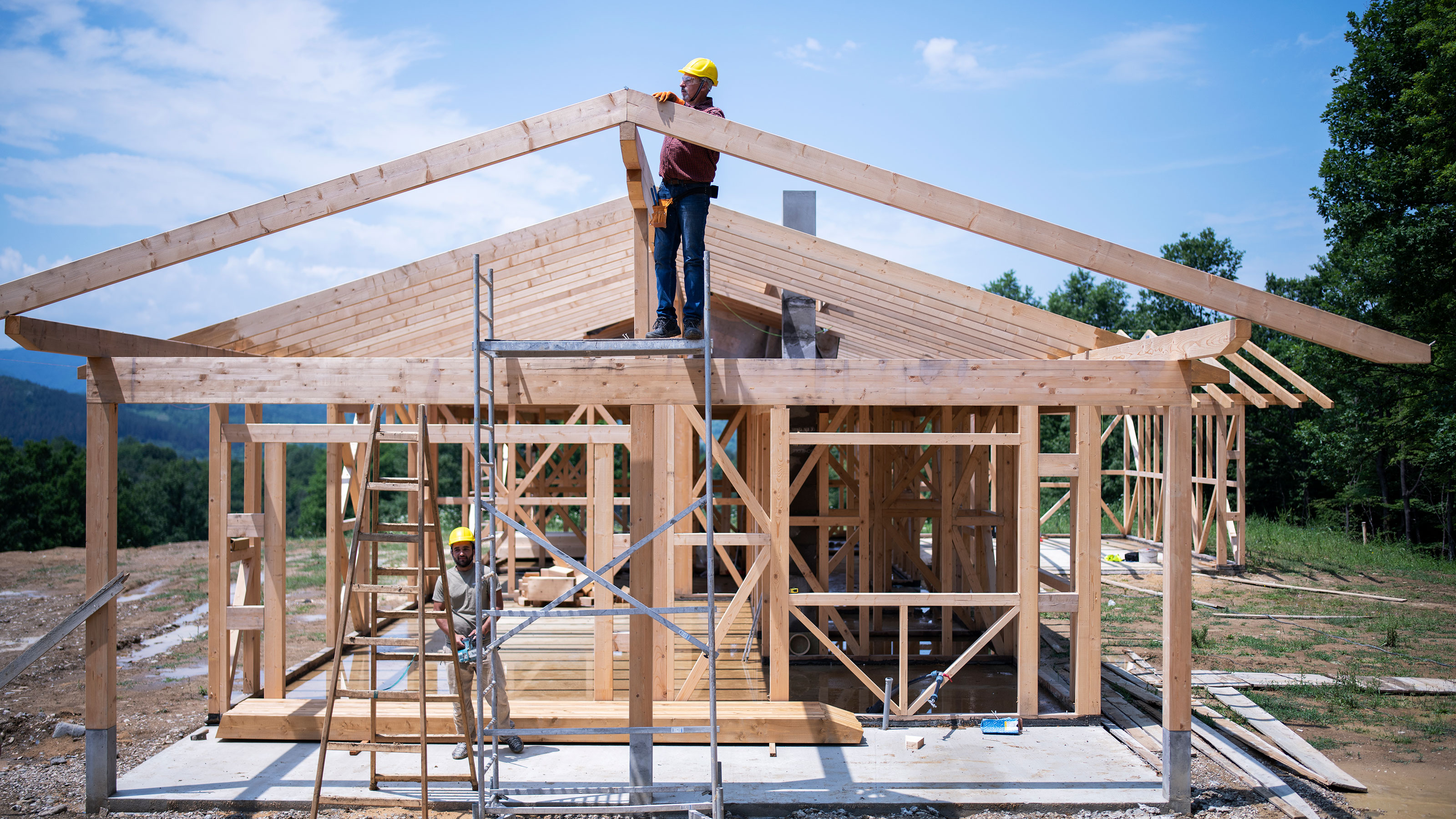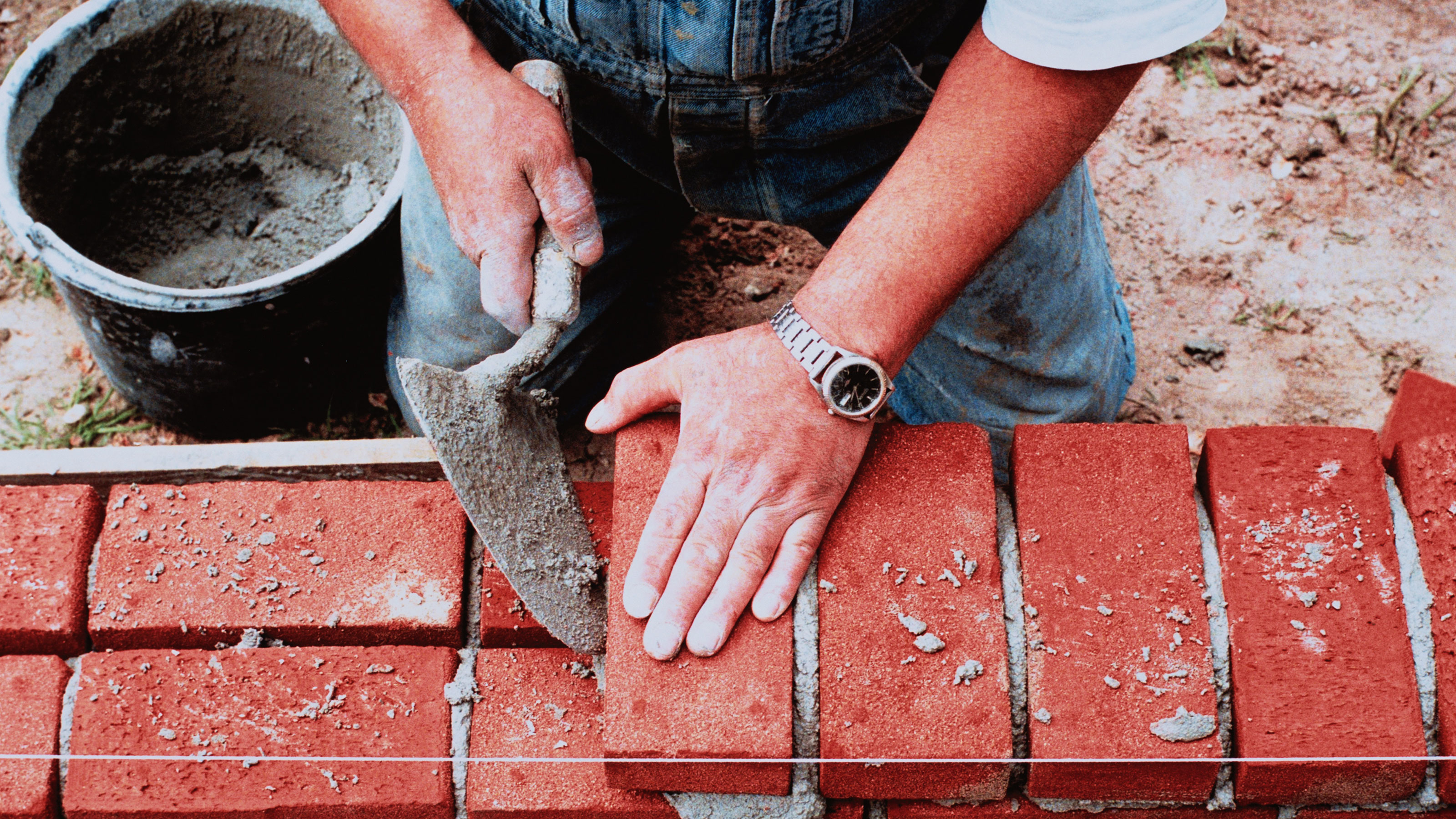Builders going bust at their fastest rate in over a decade
Soaring material costs are sending many construction firms with already slim profit margins over the edge

Builders are going out of business at the fastest rate in a decade, according to the latest data from the Insolvency Service.
The building sector accounted for a fifth of all UK insolvencies, with 2,094 going to the wall after being hit by soaring material costs, a labour shortage and slowing demand. Overall, there were 10,717 insolvencies in the UK.
And in the first quarter of last year, the construction industry had 1,048 insolvencies, marking the highest level since 2012.
Why are so many building companies going bust?
The building industry, which accounts for around 7% of the UK economy, is particularly exposed to spiralling inflation because they tend to operate with tight profit margins.
The cost of building materials has soared since the start of 2021, following on from the impact of the pandemic and the UK officially leaving the EU, leading to construction material shortages and problems importing materials.
Costs, which typically account for between 20-25% of the cost of an average building project, have continued to rise amid the highest inflation rate in 40 years, and are forecast to rise to 18% in 2023. The Construction Leadership Council (CLC) said in November that inflationary pressures present the main challenge for building companies producing energy-intensive products such as glass, concrete, cement, PIR, plasterboard, and bricks.
Meanwhile rocketing energy price rises has put pressure on construction firms due to industries producing these energy-intensive products passing on the impact of higher prices. And Russia's invasion of Ukraine has caused significant disruption to supply chains.
Get the Homebuilding & Renovating Newsletter
Bring your dream home to life with expert advice, how to guides and design inspiration. Sign up for our newsletter and get two free tickets to a Homebuilding & Renovating Show near you.
The business department's (BEIS) monthly Building Materials and Components Statistics for November revealed that monthly materials costs increased by 15% in October compared to one year ago.
Why are smaller building firms hit hardest?
Smaller, local firms are more exposed to rising costs as they don’t benefit from bulk discounts like bigger firms.
Mark Wigley, managing director of Osprey Homes, a small-to-medium sized housebuilder in Hertfordshire, told Sky News: "It makes the viability of certain projects very difficult, in as much as we have to assemble our financial appraisals well in advance of bidding for new land and that generally takes a minimum of 12 months.
"House prices are not increasingly in line with the costs of our material increases.
"So as a result, the developers are really carrying a lot of additional costs that we're finding very difficult to absorb within our day to day business."

What to do if your builder goes bust?
It’s understandable for you to think the sky has fallen in if your builder goes bust and can’t finish your project.
Hopefully you'll have taken note of our guide on how to pay your builder so you'd have paid in arrears and only for the works that have been finished. That will mean there is money left in your budget to finish your project.
A primary consideration is ensuring that everything matches up from a legal standpoint if your builder goes bust, Chartered Surveyor Bob Branscombe explains in our expert building company gone bust guide.
Take time to visit the site and check that it’s secure. Locks and codes should be changed, and all tools, including the builder’s own equipment, should be kept safe and secure. For the latter, the insolvency specialists will want to understand the scale and scope of it.
Avoid side deals with the builder, such as ad-hoc cash payments to get them to finish the work – their insurance may well be invalid as they are insolvent, and they will have people who have not been paid and will consider you a source of cash.
They may also be devoting as much time to their resurgence as they are to your job. In practice, a new team is almost always the best way forward.
Schedule out the works remaining. While the work is halted, clean up the site, take stock, revisit your specification and works schedule, and write down everything left to be completed. This will shape the new schedule when you re-procure the works and provide a framework for how to get the best from your builder going forwards.
Don’t be impatient, don’t panic, and when you try to find a builder to complete the job, don’t necessarily go with the first builder you approach after the insolvency. You don’t want to be seen as desperate or in trouble, otherwise you could attract opportunist firms offering inflated quotes.
Another thing to remember is to get in touch with any builders or trades who were due to be next on site and tell them what’s going on, including the need for delay. You don’t want the windows turning up on site when the walls are still only 500mm above ground level!
Be open and frank with the supply chain, too, rather than hoping everything will be fine and trying to catch up.
Sam is based in Coventry and has been a news reporter for nearly 20 years. His work has featured in the Mirror, The Sun, MailOnline, the Independent, and news outlets throughout the world. As a copywriter, he has written for clients as diverse as Saint-Gobain, Michelin, Halfords Autocentre, Great British Heating, and Irwin Industrial Tools. During the pandemic, he converted a van into a mini-camper and is currently planning to convert his shed into an office and Star Wars shrine.

